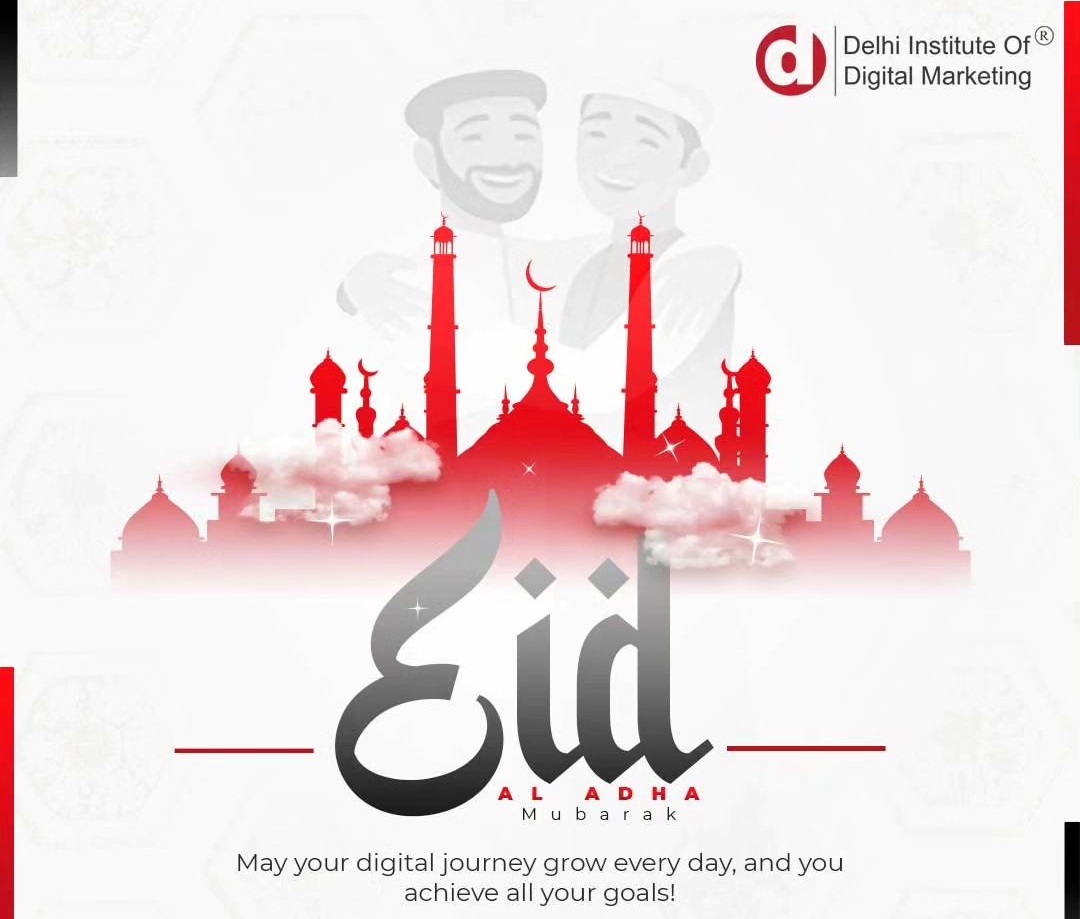Eid al-Adha, also known as the ‘Festival of Sacrifice’, is a significant holiday celebrated by Muslims worldwide, including India. It is a time for reflection, devotion, and community.
Eid al-Adha commemorates the story of Prophet Ibrahim and his willingness to sacrifice his son as an act of obedience to God. Ultimately, God intervenes and provides a ram to be sacrificed instead.
This story teaches Muslims the importance of faith, submission to God’s will, and compassion for those less fortunate.
As we approach Eid-Al-Adha, a time of spiritual reflection and communal harmony, DIDM extends its warmest wishes to all our students and team members. May this Eid be filled with the spirit of unity, growth, and digital success for everyone.
Eid al-Adha marks the end of the Hajj pilgrimage and falls on the 10th day of Dhul Hijjah to highlight the devotion and trust in divine will. It reminds Muslims of Prophet Ibrahim’s unwavering faith and the lessons of sacrifice that resonate deeply within the Muslim community.
The celebrations of Eid al-Adha typically last for three days. Muslims attend special prayers, wear new clothes, exchange gifts, and enjoy festive meals with family and friends.

A central tradition is the sacrifice of an animal, such as sheep or goat and the meat is then divided into three parts: one for the family, one for relatives, and friends, and one for the poor and needy.
Eid al-Adha is a joyous occasion that tells about the importance of sharing, giving back, and strengthening the bonds of community.
How Eid al-Adha is celebrated varies across different cultures and regions. In Muslim-majority countries the streets are decorated with festive decor, and communal prayers are held in mosques or open spaces.
In Western countries, Muslims gather for prayers and often host festive meals, inviting neighbors and friends to join in the celebrations.
Preparations for Eid al-Adha often begin weeks in advance and families clean and decorate their homes worldwide. Special attention is given to purchasing or preparing animals for sacrifice.
During Eid al-Adha, Muslims greet each other with phrases such as ‘Eid Mubarak’ or ‘Eid Sa’id’. These expressions of goodwill extend warmth and unity among individuals and communities worldwide.
Muslims wear new or clean clothes, perform Eid prayer, and refrain from gossip or negative behavior. It is also customary to visit family members, exchange gifts, and show acts of kindness to those less fortunate.
It is a tradition to give gifts in the form of traditional items such as sweets, dates, perfumes, clothes, or gadgets. This way of gestures fosters bonds of friendship and solidarity among loved ones.
As a part of tradition, families come together and strengthen the bond of unity and shared values. It is a time for children to participate in festivities, enjoy special treats, and engage in games that highlight the festival’s joyous spirit.
Eid al-Adha is a time of spiritual renewal, communal unity, and acts of kindness. It reinforces the values of sacrifice, joy, charity, and gratitude as Muslims come together to celebrate faith and tradition.
As we celebrate Eid al-Adha, let us reflect on the lessons of sacrifice and share our blessings with those around us. May this Eid bring joy, peace, and prosperity to all.
Happy Eid Mubarak to all from DIDM!
Read Also : DIDM Hosts a Digital Udaan at Rajiv Academy for Technology & Management!